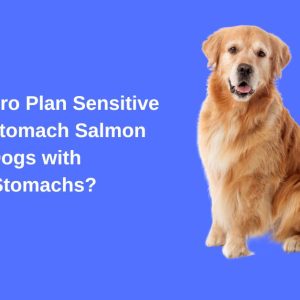
Dogs with liver disease may not be able to digest the fat in the peanut butter as well as a healthy dog could.
That said, some dogs will love eating it since they don’t get much variety in their diet. The only way to know for sure is by experimenting! It’s worth noting though that when trying new foods with your pet, make sure you’re watching them carefully for any signs of distress or illness.
Peanut butter is a high-fat food and, as such, can be difficult for dogs with liver disease to digest. This doesn’t mean that they can’t eat it at all – just that they should do so in moderation.
Some dogs will love peanut butter, while others prefer not to eat it at all. Always monitor your pet for any signs of discomfort after trying a new food and note if they refuse peanut butter in favour of other foods.
You can check our detailed articles on Which is the best dog food for liver disease
Table of Contents
Is peanut butter good for dogs with liver disease
Yes, peanut butter is a good source of protein and healthy fats for dogs with liver disease. However, it’s important to avoid feeding your dog any foods that are high in sugar, as sugar can be harmful to dogs with liver disease.
How much peanut butter is there for dogs with liver disease?
Dogs with liver disease should not eat peanut butter. This is because the sugar in peanut butter can be toxic to a dog with liver disease. The fat content in peanut butter also increases the risk of pancreatitis, which could kill your dog if they already have compromised livers.
Why Xylitol Is Dangerous to Dogs?
Xylitol can be found in sugar-free gum, breath mints and various other products because it is a low-calorie sugar replacement. However, xylitol is highly toxic to dogs and even one stick could kill them.
Xylitol spikes insulin levels and having too much insulin can kill a dog.
Xylitol also binds with cells that produce insulin which prevents glucose from entering those cells.
The result of this combination is high levels of blood sugar without any accompanying high levels of energy; the dog becomes lethargic as its brain runs out of fuel due to lack of glucose despite there being plenty in the bloodstream.
What Type of Peanut Butter is Best for Dogs?
Peanut butter is not ideal for dogs. Dogs should never eat “junk food” items, and that includes people’s food snacks like peanut butter. When it comes to nutrition, a dog needs a healthy and steady diet of specially balanced and prepared dry and wet dog food – nothing extra!
There are some peanut butters that are marketed as being “healthy” for dogs, since they contain added vitamins and minerals. However, it’s always best to check with your veterinarian before feeding your dog anything other than his or her regular diet. In general, it’s probably best to avoid feeding your dog peanut butter, even if it is a “healthy” variety.
If you want to give some kind of peanut butter on safer side then you give to them with just one ingredients we would recommend peanut butter made by Crazy Richard’s or this one by CB’s Nuts)
Can Dogs Be Allergic to Peanuts?
Yes, it is possible for your pet to be allergic to peanuts.
The signs you might see are hives, vomiting, bloody diarrhea and at times difficulty breathing. You’ll need to take them to the vet because you can’t remove these allergies on your own.
There are specific treatments that will help fix the problem but if their condition worsens it’s best they stay away from peanuts in future.
Final Verdict
There is no definitive answer to this question as dogs with liver disease can react differently to peanut butter. It is always a good idea to speak with your veterinarian about what foods are safe for your dog.





